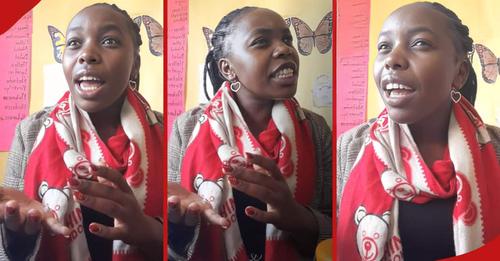In the heart of Nairobi, a city known for its vibrant culture and bustling streets, an amusing incident unfolded that showcased the wit and humor of its younger generation. A group of pupils, in a light-hearted banter, playfully roasted their teacher for not owning a personal car. This episode, while humorous on the surface, opens a window into the dynamic interactions between students and teachers and highlights broader societal attitudes towards material possessions.
The setting was a typical school day in Nairobi, where students and teachers gathered for their routine academic activities. In this urban environment, the sight of cars navigating the busy streets is a common one, and the ownership of a vehicle often symbolizes status and success. It is within this context that the pupils’ jests took place, reflecting not only their observational skills but also their ability to engage in social commentary.
The teacher in question, respected and admired for their dedication to education, became the subject of the students’ playful teasing. “You don’t have a car,” they chimed in unison, their laughter echoing through the classroom. The comment, though seemingly innocuous, carried layers of meaning. It highlighted the children’s awareness of societal norms and their inclination to measure success through tangible assets.
Despite the teasing, the teacher responded with grace and humor, turning the moment into a teachable one. This reaction was crucial as it demonstrated to the students that self-worth and professional success are not solely defined by material possessions. The teacher’s ability to laugh along and redirect the conversation towards more meaningful values left a lasting impression on the students, subtly imparting lessons on humility and the diverse paths to success.
This incident is a microcosm of a larger societal phenomenon where material wealth is often equated with personal achievement. In Nairobi, as in many urban centers around the world, owning a car is seen as a milestone of financial stability. The students’ remarks reflect the broader societal pressures and expectations placed on individuals. However, the teacher’s response serves as a reminder that success can be measured in numerous ways, including dedication to one’s profession, the impact on others, and personal growth.
Furthermore, this playful exchange underscores the evolving nature of student-teacher relationships. Gone are the days of rigid formality; today’s educational environments encourage open dialogue and the building of mutual respect. The students felt comfortable enough to tease their teacher, which is indicative of a positive, open atmosphere where students can express themselves freely. Such environments foster critical thinking and personal development, allowing students to explore different perspectives in a safe space.



